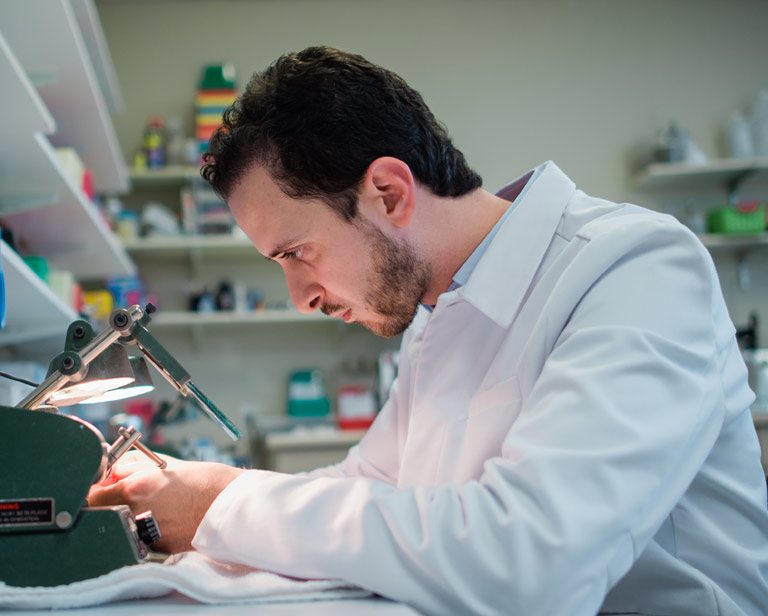I needed a root canal on a second molar, and he recommended a crown with a metal foundation. So, I asked my dentist for a gold alloy crown. He did a great job on the root canal, and the crown fits so well that it feels like my other teeth. But before the end of my appointment, my dentist told me that he got the crown from the lab, and it was 2% gold. I asked what the crown contained, and he said that he just had a patient with an emergency come in, and he would call me with the info. The crown is mostly palladium (35%), but it also contains indium (30%), silver (30%), and a little zinc (2%).
I asked for gold because I wanted to minimize other metals in my mouth. I’m concerned about palladium and indium for my long-term health and potential allergic reactions. My dentist said that I would be fine, and those materials are commonly used, and people don’t react to them much. I am disappointed that my dentist disregarded my request. My co-worker goes to a biological dentist, and I am thinking about switching. But now that I have the crown, should I be concerned about the metals in it? Will I need a new crown? Thank you. Benjamin from Arkansas
Benjamin,
Thank you for your inquiry.
After an online search, we could not find substantial recent information on indium allergies or sensitivities.
We are concerned that your dentist ignored your request for a gold crown. Dental labs are legally required to send a dental alloy certificate with a crown. Your dentist’s delay in giving you information about the metals in the crowns sounds like he no longer had the dental alloy certificate from the lab. But by law, the alloy certificate must be kept in the patient’s chart.
Dental Alloys
Alloys used in dental crowns are considered high noble, noble, or low noble. Below is a description of the metals contained in the three alloys:
- High noble (gold) – Must contain a combination of 60% gold (at least 40% of the alloy), palladium, platinum, and silver
- Noble (semi-precious) – Must contain a combination of 25% noble metal (gold, platinum, palladium)
- Low noble (non-precious) – Contains less than 25% noble metal. Low noble crowns often contain chrome, nickel, or beryllium alloys.
Advantages of Gold Crowns
Gold crowns have several advantages:
- They don’t corrode.
- The soft metal allows the lab to create margins that precisely fit the tooth and prevent a gap between the crown and tooth.
- The precise fit reduces the risk of decay beneath the crown.
What Are the Symptoms of a Reaction to Dental Alloys?
An allergy to sensitivity to dental alloys might cause pain, itching, easy bleeding, or inflammation on your gum tissue where the crown touches it.
If you think you’re experiencing sensitivity, ask your dentist to replace the crown. Also, request to see the alloy certificate from the lab before he places a new crown. If your dentist is uncooperative, you can report the issue to the state dental board.
You mentioned that you might switch to a biological or holistic dentist. If so, you can find a dentist with a commitment to respecting your wishes by scheduling a consultation first. It will give you time to meet the dentist, see if you like his or her treatment philosophy, and learn about metal-free crowns for restoring your tooth.
San Antonio, TX, dentist Gilberto Tostado sponsors this post.

Holistic dentistry with ceramic crowns from Gilberto Tostao, DDS


